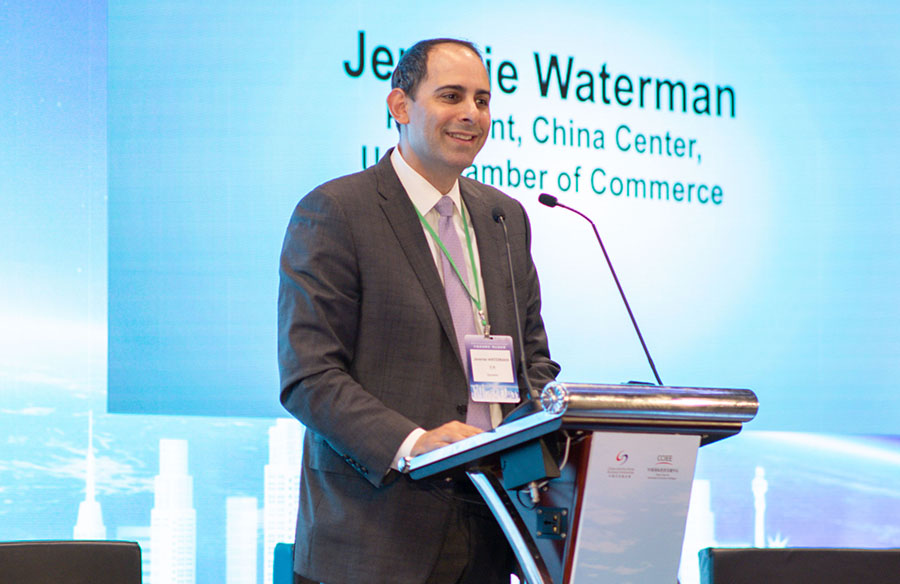Oct 14, 2019
China and the U.S. reached a "phase one" agreement to deescalate the trade war.
Zhang Monan, Deputy Director of Institute of American and European Studies, CCIEE
Oct 11, 2019
Business leaders have begun to realize that disengagement with China will have a huge impact on the world order and inflict tremendous losses on major U.S. companies.

Jonathan Woetzel, McKinsey Senior Partner
Jeongmin Seong, Senior Fellow, McKinsey Global Institute in Shanghai
Oct 08, 2019
In the nineteenth century, the world was Europeanized. In the twentieth century, it was Americanized. Now, it is being Asianized – and much faster than you may think.
James H. Nolt, Adjunct Professor at New York University
Sep 30, 2019
If prospects for a China-U.S. trade deal seem elusive, it’s because the core concepts of the two sides are so different.
Zainab Zaheer, Development Consultant
Sep 30, 2019
Hong Kong, the world’s most densely populated region, is a special administrative region of the People’s Republic of China. Hong Kong’s economic and governing affairs are self-regulated due to its special status. Hong Kong has its own legal system and judiciary, and rights and freedoms not seen in mainland China. This special status is due to end in 2047.
Stephen Roach, Senior Fellow, Yale University
Sep 27, 2019
In the here and now of climate change, it is easy to lose sight of important signs of progress. China, the world’s biggest emitter of greenhouse gases, is a case in point. By changing its economic model, shifting its sources of fuel, developing new transportation systems, and embracing eco-friendly urbanization, China’s sustainability strategy is an example of global leadership that the rest of the world should consider very carefully. In the rush to demonize China over trade, the West has missed this point altogether.
Ma Shikun, Senior Journalist, the People’s Daily
Sep 27, 2019
Despite pressure from President Trump to leave China, American businesses appear to be reluctant to do so. After years of operating profitably in China, and with no viable alternative country to which to transfer operations – including the United States – American businesses will make the financially smart choice of staying put.

Jeremie Waterman, President, China Center, U.S. Chamber of Commerce
Sep 26, 2019
There are significant and worrisome cracks forming in the commercial relationship between the US and China; neither party should have to resort to large-scale actions like tariffs in order to remedy their trade disputes.
Stephen Roach, Senior Fellow, Yale University
Sep 26, 2019
The approach to the current China-US disputes by the US administration is counterproductive. The US must not let falsehoods being spread about China interfere with the creation of productive strategies that would better solve these economic issues.
Sep 23, 2019
U.S. senators have proposed to bar China Unicom and China Telecom from doing business in the United States.
Back to Top

- China-US Focus builds trust and understanding between the U.S. and China through open dialogue among thought leaders.
- Our Offerings
- Topics
- Videos
- Podcasts
- Columnists
- Research Reports
- Focus Digest
- Stay Connected
-
Thanks for signing up!
- Get the latest stories from China-US Focus weekly.